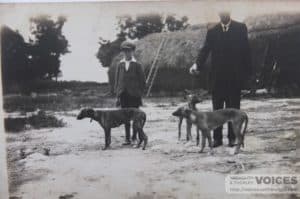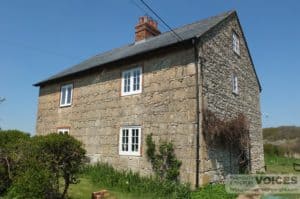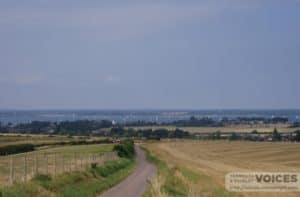When Ralph came back from the war, he didn’t want an indoor job so he went to work at Wellow Farm, and we lived in one half of Blacksmith’s Cottages. That didn’t last long. Ralph had arranged to play cricket one Saturday when they’d been told they would have the afternoon off. The foreman changed his mind and told him he’d have to stay on, haymaking. Ralph told him the hay wasn’t fit, and he’d committed to play in the team. The foreman told him to collect his cards, and we had to move out of the tied cottage. We moved back to stay with my parents in Yarmouth, and applied for a Council House. Eileen Smith nee Lansdowne b 1921

Ralph Smith as a boy, with Mr. Kingswell of Wellow Farm in the rickyard with lurchers ready for hare coursing, 1920s
My earliest memory of Thorley is from when we lived at Blacksmiths Cottages, the one nearest the church. We didn’t have an inside toilet there, only an Elsan chemical toilet in the shed. As I write this I can smell it even though 63 years have gone by since I last used it!
Peter Smith b 1946


